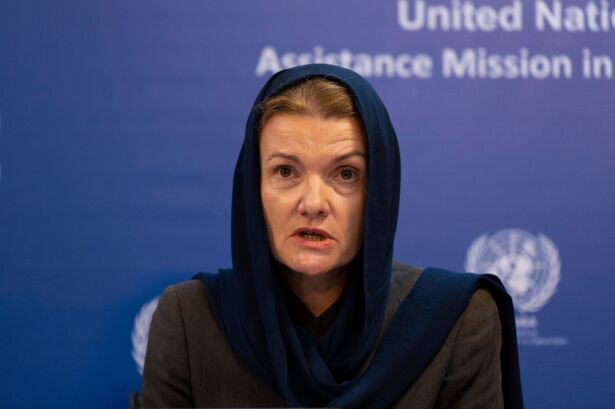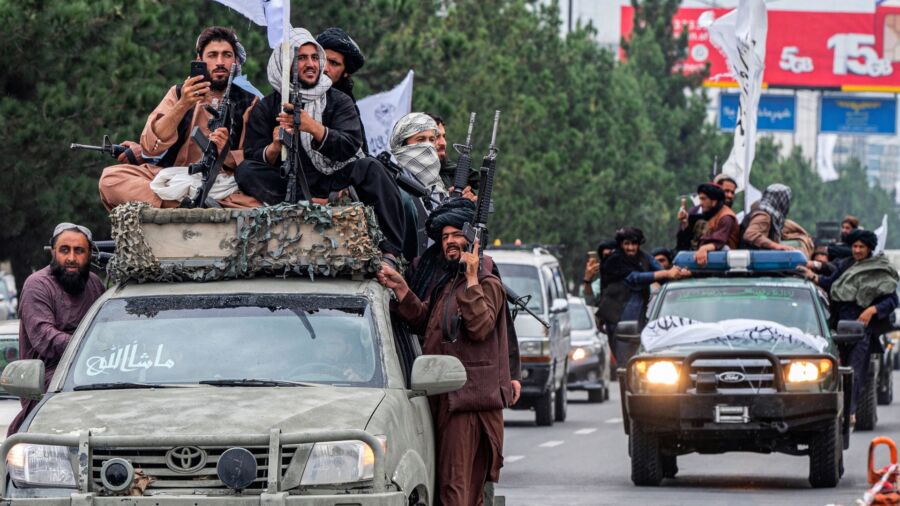The United Nations (U.N.) announced on Tuesday that nearly 1,100 civilians have been killed in attacks in Afghanistan since the Taliban takeover in 2021, despite an overall decline in casualties compared to previous years of war and insurgency.
In a report released on June 27, the U.N. Assistance Mission in Afghanistan (UNAMA) said there were 3,774 civilian casualties—including 1,095 deaths—in the country between Aug. 15, 2021, and May 30 of this year.
About three-quarters of those attacks were caused by indiscriminate improvised explosive devices (IED) in populated areas, including places of worship, schools, and markets, the report said. Among those killed were 92 women and 287 children.
“These attacks on civilians and civilian objects are reprehensible and must stop,” said Fiona Frazer, chief of UNAMA’s human rights service. “It is critical that the de facto authorities uphold their obligation to protect the right to life by carrying out independent, impartial, prompt, thorough, effective, credible, and transparent investigations into IED attacks affecting civilians.”

The organization’s latest data indicates that the number of civilian deaths and injuries has fallen compared to the period before the Taliban seized power. An earlier U.N. report indicated that in 2020, some 3,035 Afghan civilians were killed and more than 5,700 injured, for a total of 8,820 civilian casualties.
“The overall number of civilian casualties in 2020 … fell below 10,000 for the first time since 2013 and was 15 percent down on figures for 2019. However, the number killed stayed above 3,000 for the seventh consecutive year,” the 2020 document states.
The Taliban seized Afghanistan in August 2021 while U.S. and NATO troops were in the final weeks of a chaotic withdrawal from the country. The withdrawal—and the manner in which it was carried out—has been widely criticized after 13 service members died, billions of dollars worth of equipment was left behind, and the U.S.-backed Afghan government was overrun by Taliban insurgents following two decades of war in the country.
IED Attacks Rising
In a separate press release following Tuesday’s report, the U.N. said that its latest figures indicate a significant increase in civilian harm resulting from IED attacks on places of worship—mostly related to minority Shiite Muslims—compared to the three-year period prior to the Taliban takeover.
UNAMA documented 2,814 civilian casualties (701 killed, 2,113 wounded) as a result of IED attacks between 15 August 2021 and 30 May 2023.
289 children and 168 women were among the dead and wounded. https://t.co/v3WSztyeO1 pic.twitter.com/yeYDPJUu57— UNAMA News (@UNAMAnews) June 27, 2023
The release said that at least 95 people were killed in attacks on schools, educational facilities, and other places that targeted the predominantly Shiite Hazara community.
The majority of IED attacks—which resulted in a total of just over 700 deaths—were carried out by the region’s affiliate of the ISIS terrorist group known as the Islamic State in Khorasan Province, a Sunni militant group and a main Taliban rival.
The organization, however, noted that “a significant number of casualties” resulted from IED attacks for which responsibility was never claimed, or where the U.N. could not attribute responsibility to any group. The release did not provide the number of those fatalities.
Concerns Over ‘Lethality’ of Attacks
In addition, the U.N. also expressed concern about “the lethality of suicide attacks” since the Taliban takeover, with fewer attacks causing more civilian causalities.
It noted that the attacks were carried out amid a nationwide financial and economic crisis. With the sharp drop in donor funding since the takeover, victims are struggling to get access to “medical, financial, and psychosocial support” under the current Taliban regime, the report said.
The U.N. report also demanded an immediate halt to attacks and said it holds the Taliban-led government responsible for the safety of Afghan citizens.
The Taliban said their administration took over when Afghanistan was “on the verge of collapse” and that they “managed to rescue the country and government from a crisis” through proper management and by making sound decisions.
The Taliban-led ministry recently claimed that the situation in Afghanistan has gradually improved since August 2021. “Security has been ensured across the country,” according to a statement, which added that the Taliban consider the security of places of worship and holy shrines—including Shiite sites—a priority.
Despite promises of a more moderate administration, the Taliban barred Afghan women on Dec. 20, 2022, from attending universities in a decree designed to further restrict women’s rights and freedoms, which sparked an international outcry. The Taliban also barred women from public life and most non-household work, including for nongovernmental organizations and the U.N.
Human Rights Watch (HRW), which shared the letter on Twitter, denounced the Taliban’s decision as “shameful” and a violation of the right to education for women and girls in Afghanistan.
The measures harked back to the previous Taliban rule of Afghanistan in the late 1990s when they also imposed their strict interpretation of Islamic law, or Sharia.
The Associated Press contributed to this report.

